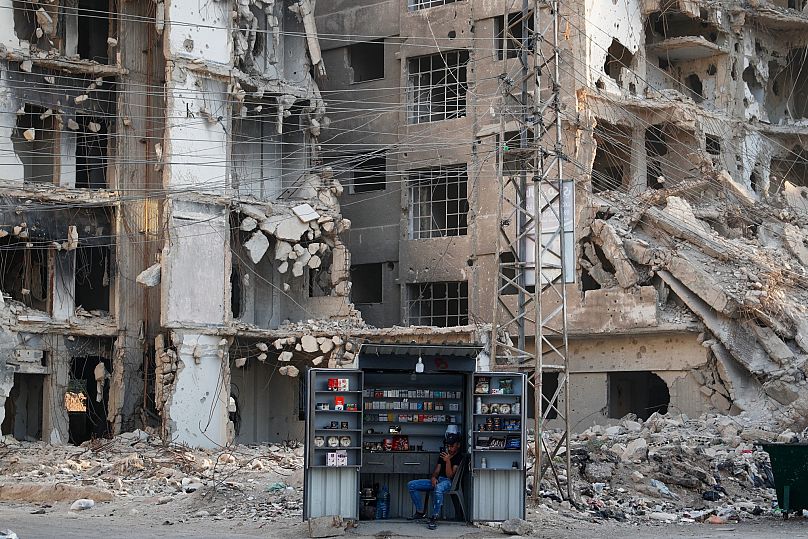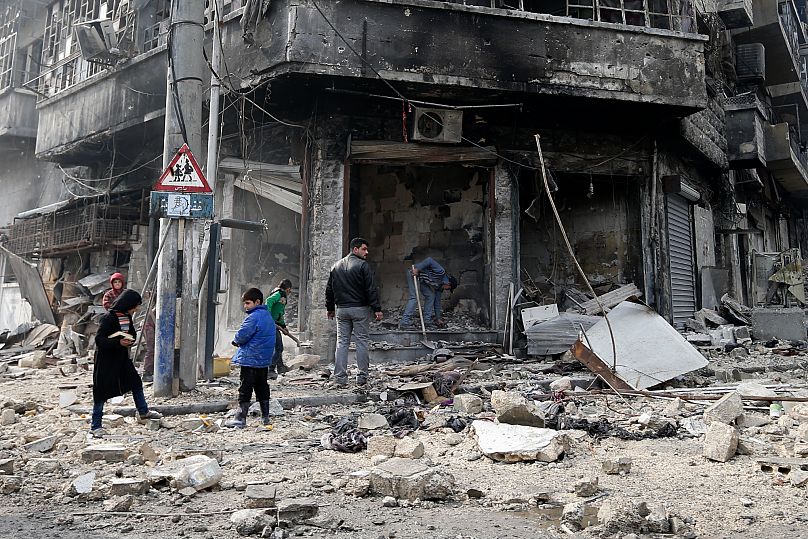Syria's civil war began in 2011 when mass protests against the government of then-President Bashar al-Assad were met with a brutal crackdown and spiralled into armed conflict.
Rebuilding Syria after over more than a decade of civil war is expected to cost about $216 billion (€185 billion), the World Bank said in an assessment published on Tuesday.
The cost is almost 10 times Syria's gross domestic product for 2024.
The conflict destroyed large swathes of the country and battered critical infrastructure, including its electrical grid.
The World Bank says the rebuilding may cost between $140 billion and $345 billion, but their "conservative best estimate" is $216 billion.
The World Bank estimates that rebuilding infrastructure will cost $82 billion (€70 billion). It estimated the cost of damages for residential buildings at $75 billion (€64 billion) and $59 billion (€50 billion) for non-residential structures.
The province of Aleppo and the Damascus countryside, where fierce battles took place, will require the most investment, according to the assessment.
"The challenges ahead are immense, but the World Bank stands ready to work alongside the Syrian people and the international community to support recovery and reconstruction," World Bank Middle East Director Jean-Christophe Carret said in a statement.
Despite re-establishing diplomatic relations with the West and signing investment deals worth billions of dollars with Gulf countries since former President Bashar al-Assad fled Syria, the country is still struggling financially.
While the United States and Europe have lifted many of the sanctions imposed during the rule of the al-Assad dynasty, the impact on the ground has so far been limited.
Cuts to international aid have worsened living conditions for many. The United Nations estimates that 90% of Syria's population lives in poverty.
Syria's civil war began in 2011 when mass protests against the government of then-President Bashar al-Assad were met with a brutal crackdown and spiralled into armed conflict.
The grinding conflict killed hundreds of thousands of Syrians and displaced as many more with vast areas of the country destroyed.
More than 6 million Syrians were registered as refugees or asylum seekers by the end of 2024, mainly in Turkey, Lebanon and Jordan.
The EU is home to around 1.3 million Syrians, mainly distributed across Germany, Sweden and Austria.
Al-Assad was ousted in a lightning rebel offensive in December after ruling the country for more than 20 years.













